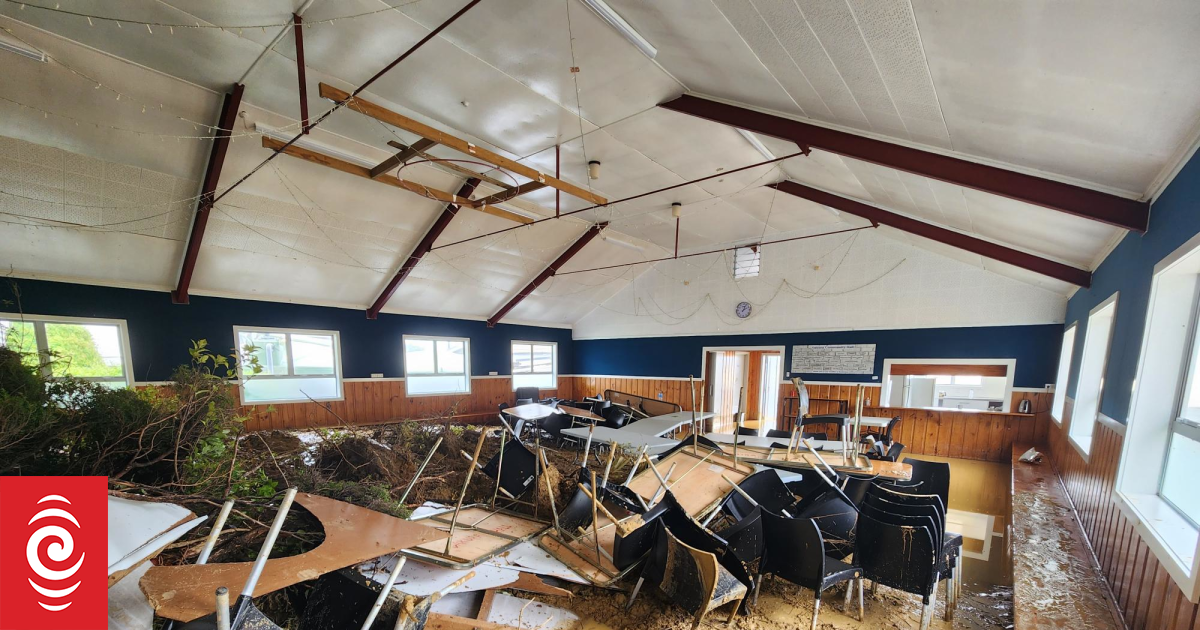The teachers’ strike rally on March 16 this year had teachers team up from primary school and beyond for industrial action. Photo / Michael Cunningham
A Kaitāia mother is dismayed at the impact the rolling strikes are having on her sons’ learning and says they are now losing interest in school.
Rolling strikes have become the new normal across the
country, but Maria Parsons has said she and other parents are concerned that their children aren’t getting a fair opportunity to achieve their NCEA credits.
“Mainly my biggest concern is that the kids have lost interest now in school. They have a couple of days and then that momentum gets broken with their learning on the days they’re having off.”
Parsons has said her sons “don’t know what it’s like” to go to school Monday to Friday and is concerned about the future impact.
“It’ll be a culture shock when they actually go out into the real world,” she said.
Her 15-year-old son, Johnny, has been picking up other activities and joining school holiday programmes to make up credits he’s missed out on during the term.
“There’s disruption of not having all the days and he’s worried he won’t make up the credits,” she said, “it’s just hard when you see your kids trying and they’re not getting the support”.
It’s been a rocky few years with Covid-19 rearing its head, and Parsons said that coupled with the rolling strikes, her boys can’t remember the last time they had a full week at school.
Advertisement
“I asked them when was the last time they did a full five-day week and they reckon it was the second week of the first term.”
Parsons is of the belief that her sons won’t be covering the content and curriculum they should be with the number of days they aren’t in the classroom.
With three sons, two in secondary school and another in intermediate, she pointed out that leaving her 13-year-old at home alone is technically illegal, so she’s had to bring him on jobs with her.
“There was only one day last week where all of them were at school,” she said.
She feels for parents who are unable to stay at home with their children, instead spending their days worried about their kids.
“They’re actually really angry, there’s a lot of anger building up,” she said.
“Because your aim as a parent is to grow up contributing members of society, but you look out and there’s a number of kids wandering the street.”
“They come from good families, but their parents are at work.”
Advertisement
Parsons said she understands the reason for the strikes and has been a full supporter, but the tether is running short.
“At the moment we don’t really care, we just want our kids to be educated five days a week.”
Parsons’ concerns follow an announcement last Friday that the Employment Relations Authority had suggested a stop to secondary school teachers’ industrial action and consider independent arbitration.
So far, negotiations between PPTA Te Wehengarua and the Ministry of Education have been unsuccessful.
Te Manihi Tumuaki Northland Principals’ Association chair and Tikipunga High School principal Alec Solomon said “everyone” is feeling frustrated at the lack of forward movement.
“I put the teachers that I speak to in this category as well, because most parties are incredibly motivated to put this behind us, particularly after the disruptions of the pandemic.”
He said it’s becoming common now to see schools altering their learning programmes after so much disruption, and the idea of independent arbitration could speed up the process.
“Anything that’s going to be a catalyst I guess for expediting this process can’t be a bad thing.”
“My concern for both parties is when we do get an agreement, I hope that both parties can find an agreement they’re both happy with so we can get back to our core business of teaching.”
He said if change doesn’t occur soon, “it may come at too great a cost”.
Last week, the Ministry of Education said the strikes “put young people in the middle of an adult dispute”.
According to the Ministry, by the end of this term, students in years 9, 11, 12 and 13 will have been away from classroom learning for 10 days which includes rostered days home. Year 10 students will have been away for nine days.
PPTA Te Wehengarua acting president Chris Abercrombie told RNZ that teachers were fighting for a pay rise that matched inflation.
He said teachers would rather be in the classroom than taking industrial action but also noted that some schools were already rostering students home before rolling strikes because of teacher shortages.
”It’s a great career, but unfortunately when you’re making decisions about paying your bills, teaching for a lot of young people isn’t stacking up at the moment.
“We want to make sure there are subject specialist teachers in front of every student in Aotearoa New Zealand, that’s what they deserve and that’s what we’re fighting for.”
The Northern Advocate contacted the Post Primary Teachers’ Association which said it cannot comment on matters about arbitration or suspension of action until the national executive had considered the facilitator’s comments “as soon as possible”.
Brodie Stone is the education and general news reporter at the Advocate. Brodie recently graduated from Massey University and has a special interest in the environment and investigative reporting.



